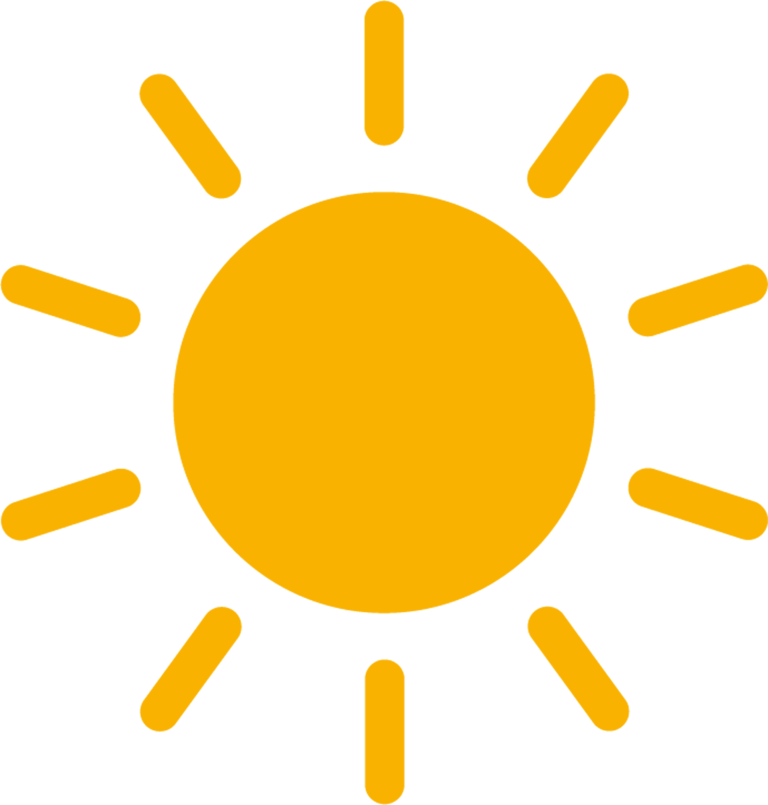Being on lockdown has meant that many of us are spending more time in our gardens. Barbecues have been dragged out and have already been used more times this month than the number of years they’ve been languishing in the shed. Kids (and some adults) have been bouncing on trampolines and the garden furniture has seen more action than Bruce Willis.
So great news for Vitamin D levels, right?
Yes. It is well known that Vitamin D is essential for healthy bones and it can be hard to get enough from your diet. This means we do have to get most of ours from sunlight. Current advice suggests that most people can get enough Vitamin D to stay healthy from casual exposure to sunlight for only a few minutes a day, several times a week – but in normal circumstances, this can be tricky to do. Working long hours in an office environment with no natural light can mean we are often starved of sunlight – and the necessary Vitamin D boost that comes with it. So, while we are still on lockdown, take this opportunity to get outside, get some fresh air and feel that sun on your face.
Free reign to sun worship then?
Not quite. It may not be the Costa del Sol but spending time in the sun can still be damaging to our skin if we don’t take sensible precautions.
What happens if we spend too much time in the sun?
Sun burn. Our skins are delicate if not protected. At best, even the mildest sun burn can be uncomfortable. At worst, some burns can be incredibly painful and the damage to the cells can be irreversible.
Melanoma. This is a type of skin cancer. DNA cells in the skin are damaged by UV rays from the sun. According to Cancer UK, 42 people are diagnosed with melanoma every day in the UK. This equates to over 15,000 cases per year. Melanoma is a leading cause of cancer deaths in younger adults. Over 2,000 people die every year in the UK.
Non-melanoma. Also, a type of cancer but this can be easily removed. Can cause disfigurement. Over a quarter of a million cases diagnosed every year.
Premature ageing. Skin damage can cause dryness, itching, wrinkling, blackheads and loss of skin elasticity.
Who is at risk from over-exposure?
- Babies, children and young people
- People who burn rather than tan
- People with lighter skin
- People with fair hair or red hair
- People with freckles or moles
- People who work outdoors
- People who sunbathe
- People who holiday abroad (this one won’t be relevant this year but if you’ve been away a lot in the past, your skin will be less resilient)
- People with a family history of skin cancer
- People who have had an illness or medicine that has left them with less resistance to skin problems
But really, no-one is safe from the dangers of over-exposure. Recent health guidelines state that there is no such thing as a ‘healthy tan’. EVERYONE is at risk. But there are simple things that you can do to help protect yourself. Follow our handy tips to stay sun smart this Summer – even if you don’t get further than your garden fence.
10 top tips to stay sun smart this Summer
- Reduce the amount of time you spend in the sun overall. The less time your skin is exposed, the less chance it has to be damaged.
- Avoid being outside when the sun is at its hottest, usually 11am to 3pm in March to October. Handy tip: When your shadow is shorter than you, the UV rays are at their highest.
- If you do go out, cover up areas that are more likely to burn with cool, loose-fitting clothes. A wide-brimmed hat can protect the face, neck and ears.
- Wear sunglasses. Your eyes are also at risk from over exposure to UV rays. Try ones with wraparound lenses or wide arms. They should have the CE Mark and European Standard EN 1836:2005.
- Wear sunscreen whenever you are outdoors. Sunscreens protect against UVB rays that burn the skin and UVA rays that develop tan. Both types damage DNA in your skin and can result in cancer. Check the UVA and UVB ratings. The UVB factor is usually a number (SPF rating). The higher the number, the higher the protection. Use the right factor for your skin type. The UVA rating is a star rating with 5 stars providing the best protection. You should have an SPF rating of 15 or more. For UVA protection you should have a rating of 4 or more.
- Apply sunscreen liberally, enough to leave the skin with white streaks. It should be applied 30mins before exposure and again immediately before you go out. Apply to all exposed areas including scalp if you have thinning hair. Reapply regularly, especially after rubbing, sweating or a dip in the paddling pool. This is true even if the bottle says it is water-resistant.
- Check sunscreen is not past its expiry date. Most sunscreens last 2-3 years.
- Seek shade at regular intervals.
- Children’s skin is more sensitive than adults and can burn more easily. Children under 6 months should not be exposed to strong sunlight. Try to time activities around periods when the sun is at its hottest. Covering skin is more effective than using sunscreen. If they do need to be outdoors, use sunscreen with the correct UVA / UVB protection. Reapply regularly and liberally. Seek shade often.
- Avoid sunbeds. Sunbeds and sunlamps can be even more dangerous than natural sunlight as they use a concentrated source of ultraviolet (UV) radiation. The British Association of Dermatologists advise people not to use them. Some countries have banned them altogether.
You may think that a tan makes you look healthier, but tan, just like sunburn, is a sign that your skin has been damaged. If you really want to get colour this Summer – fake it, don’t bake it! (but remember that fake tan products won’t protect you from the sun either, so you’ll still have to pile on the factor 50.*
*other SPF ratings are available.
In order to protect our staff and our clients, Choose Occupational Health are adapting operations in line with government advice. Many of our clinics and face to face appointments have been suspended but we are still offering telephone consultations and appointments where available. A limited number of regular services are still operating where needed. Please contact us on 01228 513687 for further information. Stay safe.

